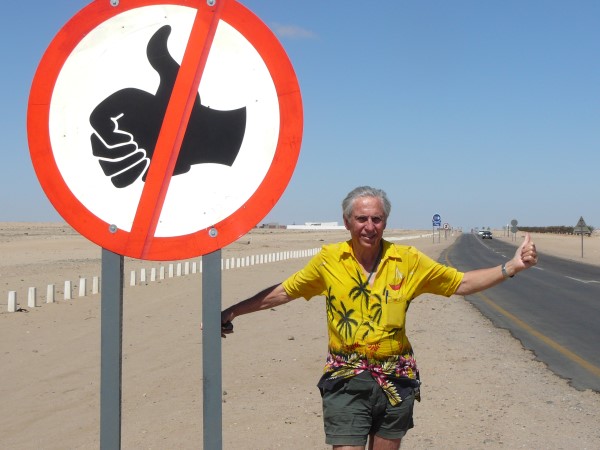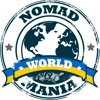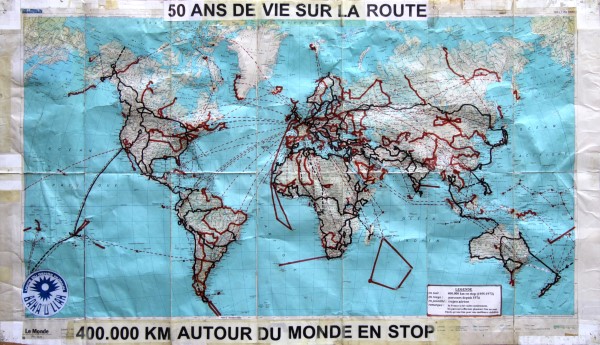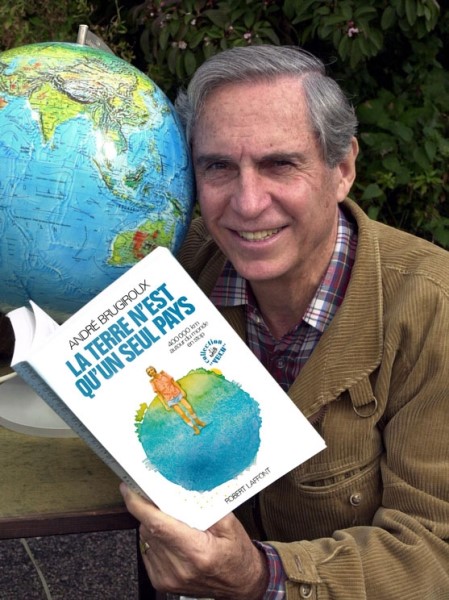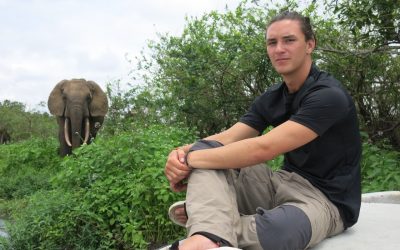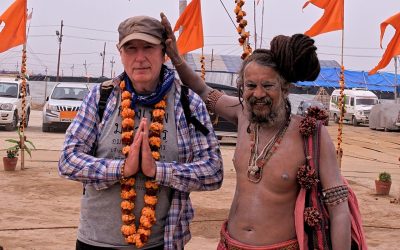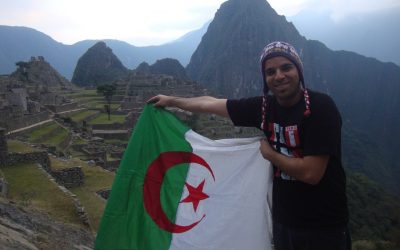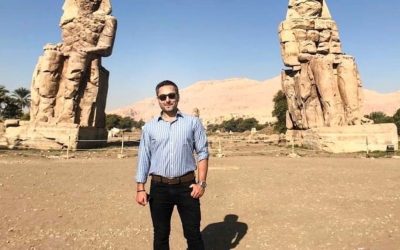Ladies and gentlemen, today we present the ultimate travel legend, a man who has spent all of his life dedicated to travel – including hitch-hiking for 18 years away from his country of origin at a time when travel was extremely rare indeed. Having seen and experienced what most people would need 20 lifetimes to achieve, André Brugiroux shares a little of his story with us today.
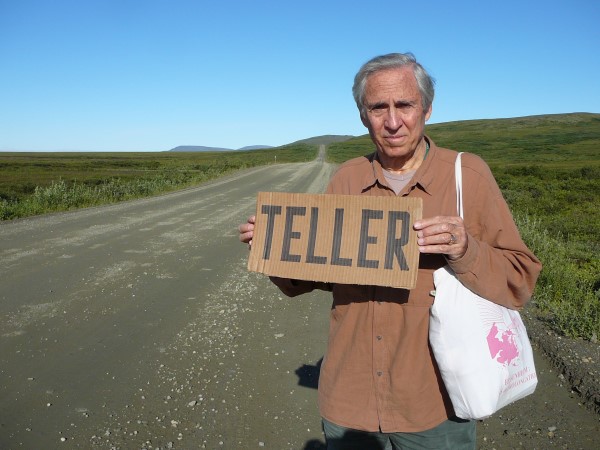
André, tell us something about your early years and how they shaped you and your view of the world.
I was born before WWII. Difficult to imagine today the war years of my youth. My father was paid as a railwayman on the lowest wages. But those hard years toughened me for the future.
My mother had the good idea to send me to the boy-scouts. So, I acquired resourcefulness. She put me in a hotel school in Paris. This made it easy for me to find jobs anywhere in the world. We had to rebuild the country after the war and nobody was thinking about travelling.
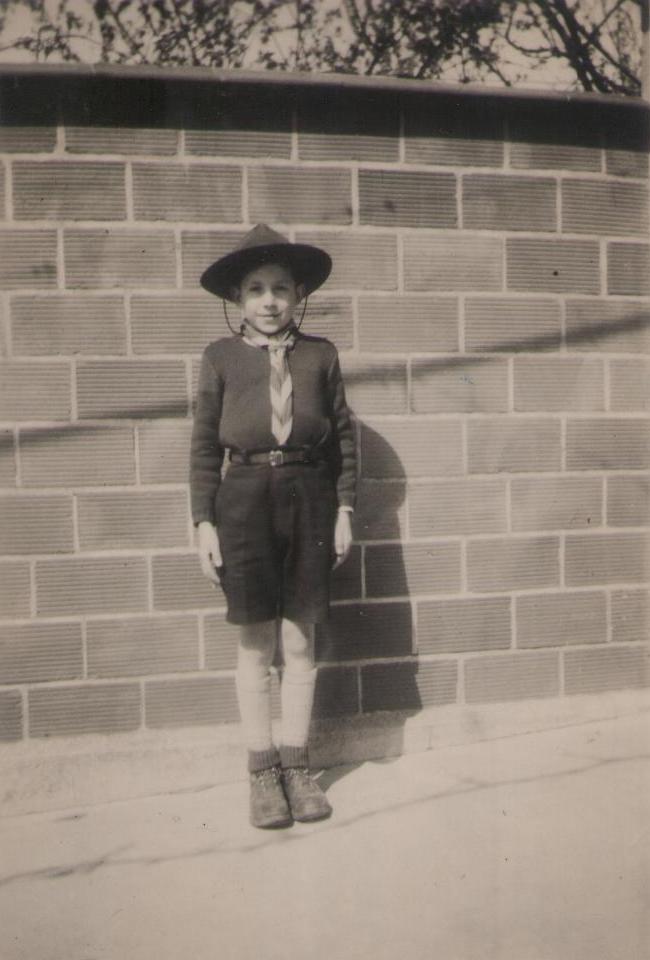
You have travelled nonstop for very many years from the mid-50s on. How did you decide to do this at the time? What did the people around you think about this? And what were the challenges and rewards of seeing the world at that time?
I left France in 1955 at the age of 17. As my father had no money and we had no telephone at home, I had to fend for myself from then on. I never thought I could see the whole world at that time. Nobody had ever travelled in my family. Fortunately, the hotel school and my father facilitated my first step. The school sent me on a summer training course as a waiter in Scotland to learn English and my father gave me a free train ticket.
That’s why I left France with only 10 francs ! I had never programmed anything. Things just came along. Unconsciously I was obeying my destiny. Now that I have reached the end of my life, I realize things came logically.
I spent the first 7 years learning languages by working in different European countries (Scotland, Spain, Germany and Italy). In ‘58 and ‘59, I had to do military service. I spent 2 years in the Congo to avoid the Algerian war. Then I stayed 3 years in Canada where I finally could save money (as a translator) for my dream to know the world. I did not know I could save money in Canada.
I discovered this fact on the spot. I dropped in all those different countries like a “paratrooper”, without having a job in hand and knowing the language. By this time I was 30. With my savings from Canada I hitch-hiked 400.000 km through 120 countries in 6 years (between 1967 and 1973) on a dollar a day (because I never slept in a hotel and avoided restaurants and never paid for transport !).
I came back home end of 1973 after 18 years of absence. I was not looking for adventure, but my style of travelling brought me plenty of it and it is a miracle I came back alive !
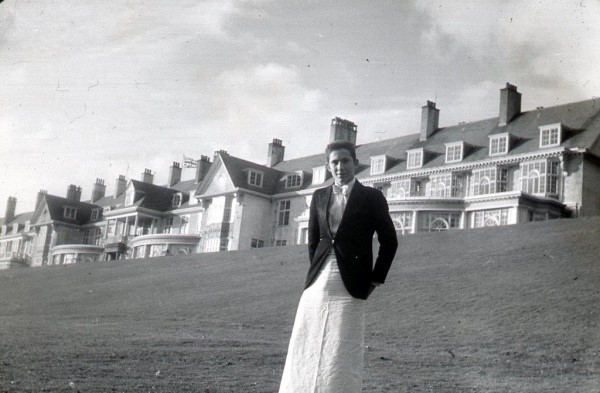
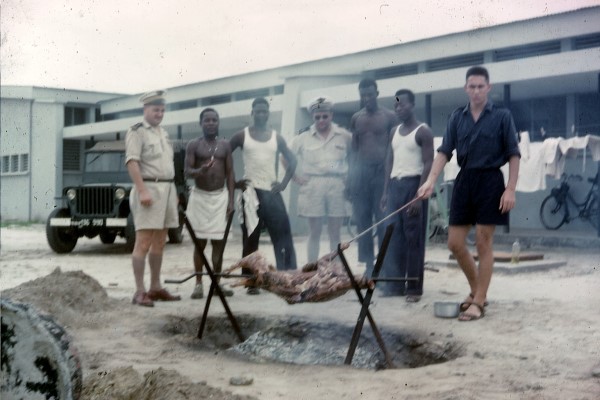
Those 18 years constituted my university. I took me then 2 years in France to regain my health. From 1976 on, I started roaming the world again to see the rest of it and to share what I had learnt. I wanted to share the Baha’i world peace plan I had discovered. The best answer to our messy and dangerous world, I believe. Being honest, I felt I had to share it. I financially managed my “teaching” around with my talks, showing the film of my odyssey and the sale of my books. I had not left France completely, but still I spent 7 to 8 months each year out of France until the 2020 pandemic !
I finally visited altogether the 251 different administrative zones – as I see them – of our present world. I have never had in mind the mythical goal of 193 nor the competition spirit to be “the biggest traveller”. I find ridiculous the ticking-off country competition raging around to-day.
To tell the truth, I am not a real traveller but rather a student. The fortuitous discovery of the Baha’i writings in Alaska was my golden fleece, the answer to an arduous quest. I suddenly understood why I had been battling so much on the road !
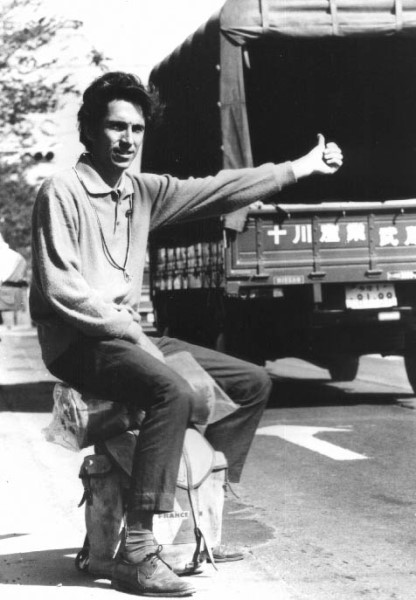
You were the first Frenchman to visit all countries – completing them in 2002 with North Korea which also makes you one of the first people to reach every country. What urged you to do the feat, and how did it feel once you achieved it?
My last country was in fact brand new South-Sudan in 2011.
Insatiable curiosity of the mind, desire to learn and understand and the pleasure of discovering and mastering the unknown have motivated me to visit all countries and territories of the world. My first 18 year-long trip was a spiritual quest without knowing it.
What urged me : born before the war I wanted to find out although unconsciously if peace is possible.Once I achieved my impossible dream (no money and no information nor encouragement nor references at the start), I indeed felt great.
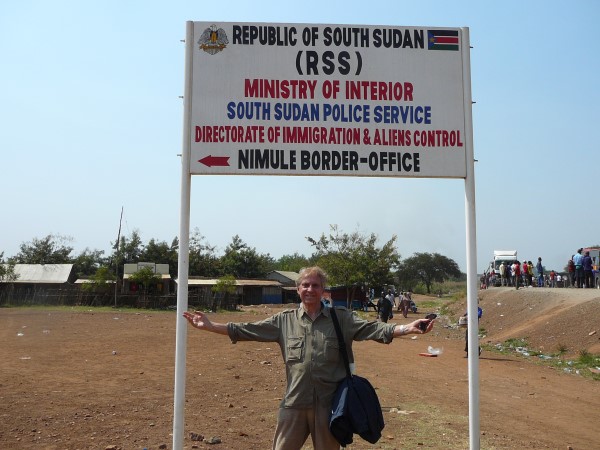
And out of these 193 countries, which ones have stayed closer to your heart and why?
Hard to say. There are beautiful people and great sceneries everywhere. Nevertheless I have had two crushes : one is Italy where I worked 2 years and the other Québec where I spent many months. I love their style of life. In both places I felt totally at home !
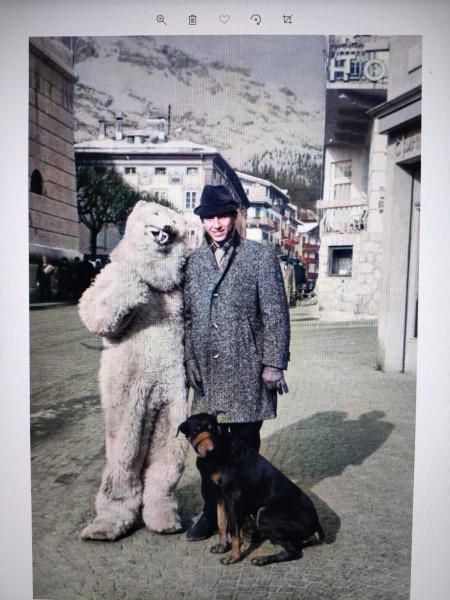
You are happily married with children – what is the secret to keeping a balance between being a traveller and having a family too? Do your wife and children share the love of travel?
Travelling and marriage are not compatible. Personally I married late at 47. My wife who is not a traveller had nevertheless the cleverness and kindness to let me go at my will without saying a word. Lucky me ! I am so thankful to her for that.
My daughter has travelled much. But it seems everyone does today.
According to me, you have to be alone to travel properly. Two people travelling together are taking a holiday. Three is already a group. Over 3 starts colonisation ! I have nothing against organized tours as long as I organize them myself !
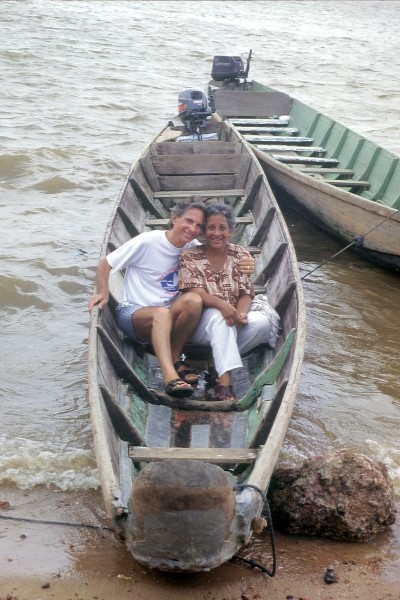
How did your travels change from the 1960s to, say, the more recent years? And how has travel in general changed – is it for better or worse?
In 1955, remember there were no guide books, no telephone at home, no television and no Google, in short no information. Today we know exactly what we are going to see before arrival. During my first 18 year trip I saw a world we dream about but which doesn’t exist anymore. The population of the world has doubled. Therefore, today, you have to line up and pay everywhere. Pollution was not here before. The first part of my travelling life and the second are like day and night ! For example, the famous paradise of Bali has become a hell nowadays.
I slept in the ruins of Machu Picchu. I visited Petra alone. Who can do it today ? At the time of the USSR, the streets in Moscow had no traffic at all. Recently I missed a flight there because of a traffic jam. In Bora Bora I only saw fishermen’s huts. Today if you don’t sleep in a luxury hotel there you are not allowed on the beach, etc.
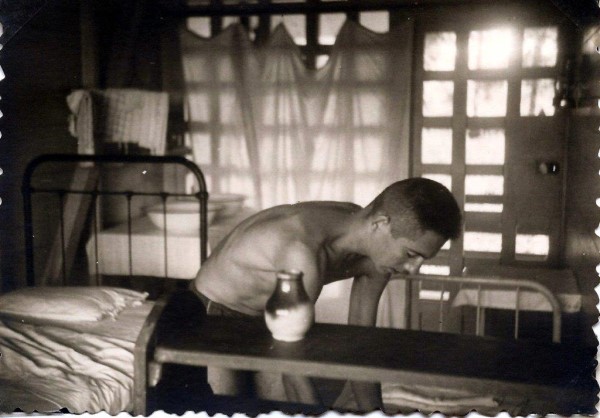
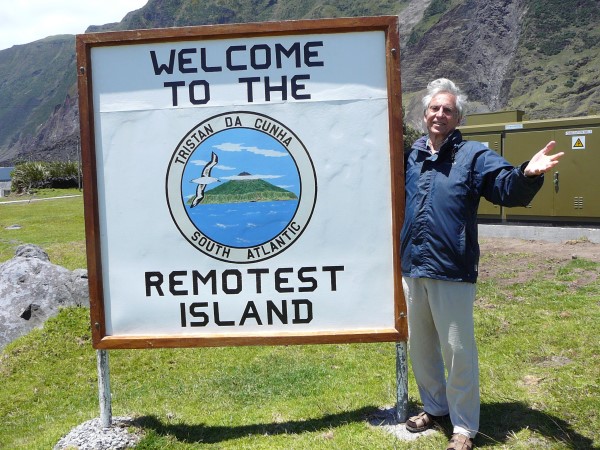
You have written a major bestseller book – La Terre n’est qu’un seul pays (The World is but one country). Tell us about the book and how it was received in France. And tell us a little about your other books too.
I have written 9 books about my experience. My first one La Terre n’est qu’un seul pays (One people, One planet in the English version, La Tierra es un solo país in Spanish) tells about my first 18 year trip and mainly about the six-year hitch-hiking. This book has sent many people to the road and convinced others about the Baha’i ideas. I have another book telling about the second part of my life Une vie sur la Route. One of my book explains through my quest the Baha’i revelation Le Prisonnier de Saint-Jean-d’Acre. My last book Victor Hugo et l’ère nouvelle shows that the Baha’i ideas are to be found in the work of this great poet.
Harry Mitsidis, the Founder of NomadMania, considers you his idol in terms of travellers and has called you a legend. Who do you look up to in the travel world and why? And do you believe that you are a legend?
It is a fact that I have inspired some people and that I have not found anybody who has travelled in such harsh conditions as mine and during all his life. And has encountered so many dangerous adventures. Fortunately, Jupiter lies in the best place of my zodiac for protection !
The three favourite words of usual tourists are prohibited in my travelling : hotel, restaurant and taxi.
I have no single model for travelling although I admire deeply some great adventurers of the past.
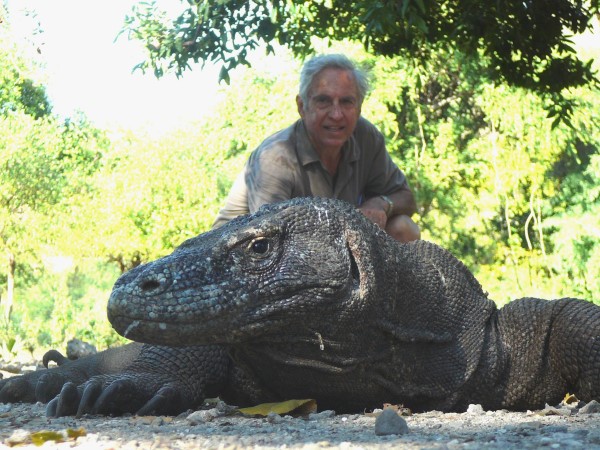
Have you still been travelling the last years and if so where? And what about since the pandemic started, what have you been doing?
I decided to stop travelling at the end of 2019 at the age of 82 after visiting Navarra in Spain.
During the pandemic I quietly stayed at home ! No regrets, I have had a life beyond the wildest expectation !
In 2021, I gave up my last project : the forbidden Chagos islands, the last blank on my map. I had found a kind skipper to take me free there from Mauritius. But, too late to wait any longer for the departure. At 83 my feet are not too safe even on steady ground. Being jostled on a sailing-boat would be suicide !
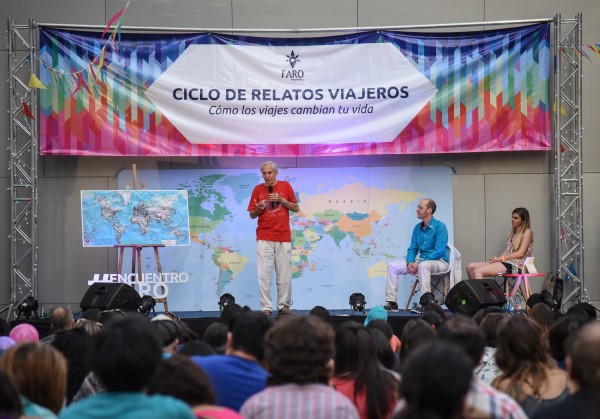
And finally our signature question – if you could invite 4 people from any era to dinner, who would your guests be and why?
I would invite 4 fabulous travellers :
Pierre-Olivier Malherbe : the first Frenchman to walk around the world alone as a Spaniard between 1592 and 1609.
Jeanne Baret : the first woman to go around the globe in 1766 (with the Bougainville expedition). Dressed as a man as women were not allowed on board in those days.
René Caillé : the courageous explorer who entered forbidden Tombouctou in 1828.
Alexandra David-Neel : the daring Parisian woman who reached forbidden Lhassa in 1924 as a beggar !
